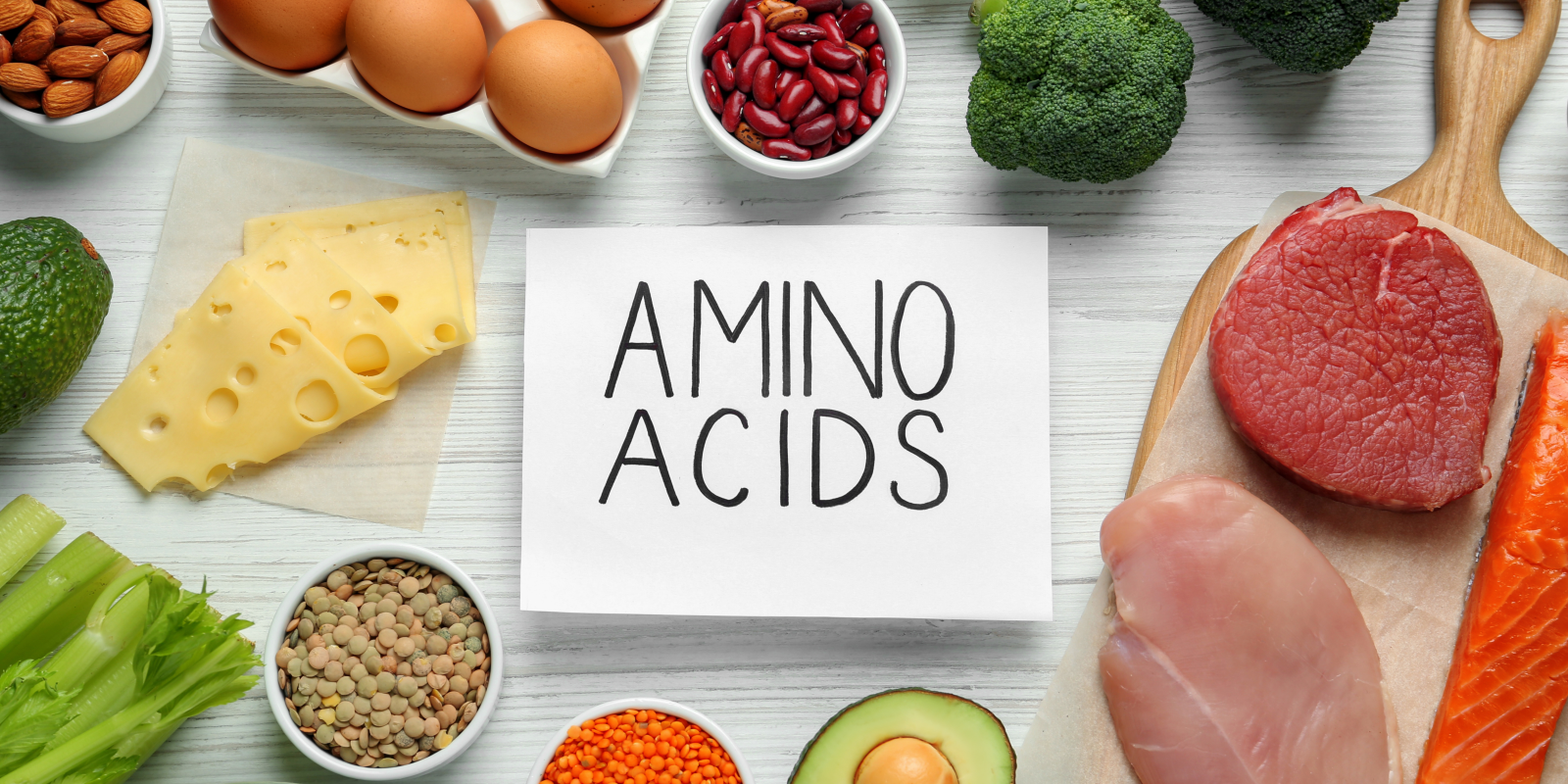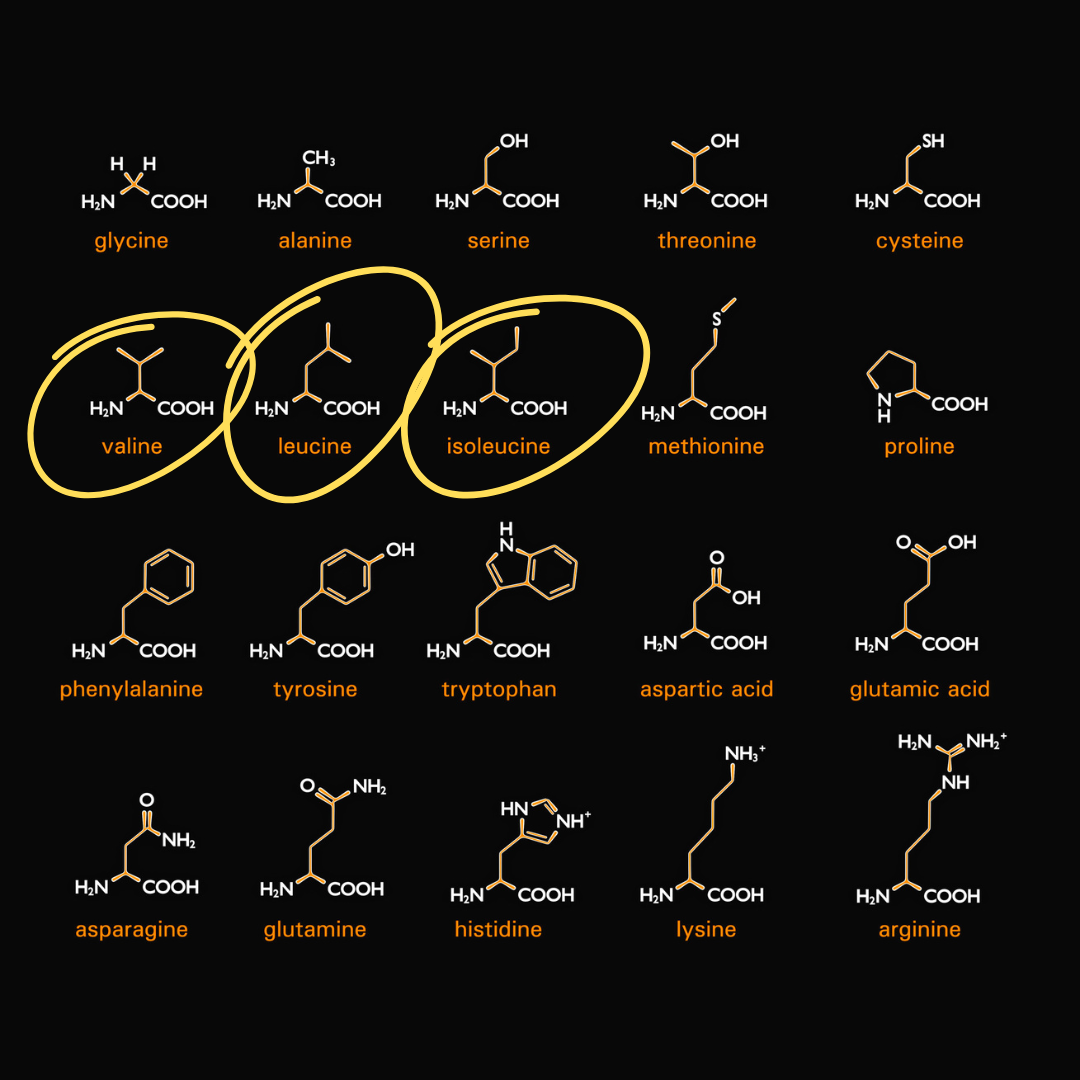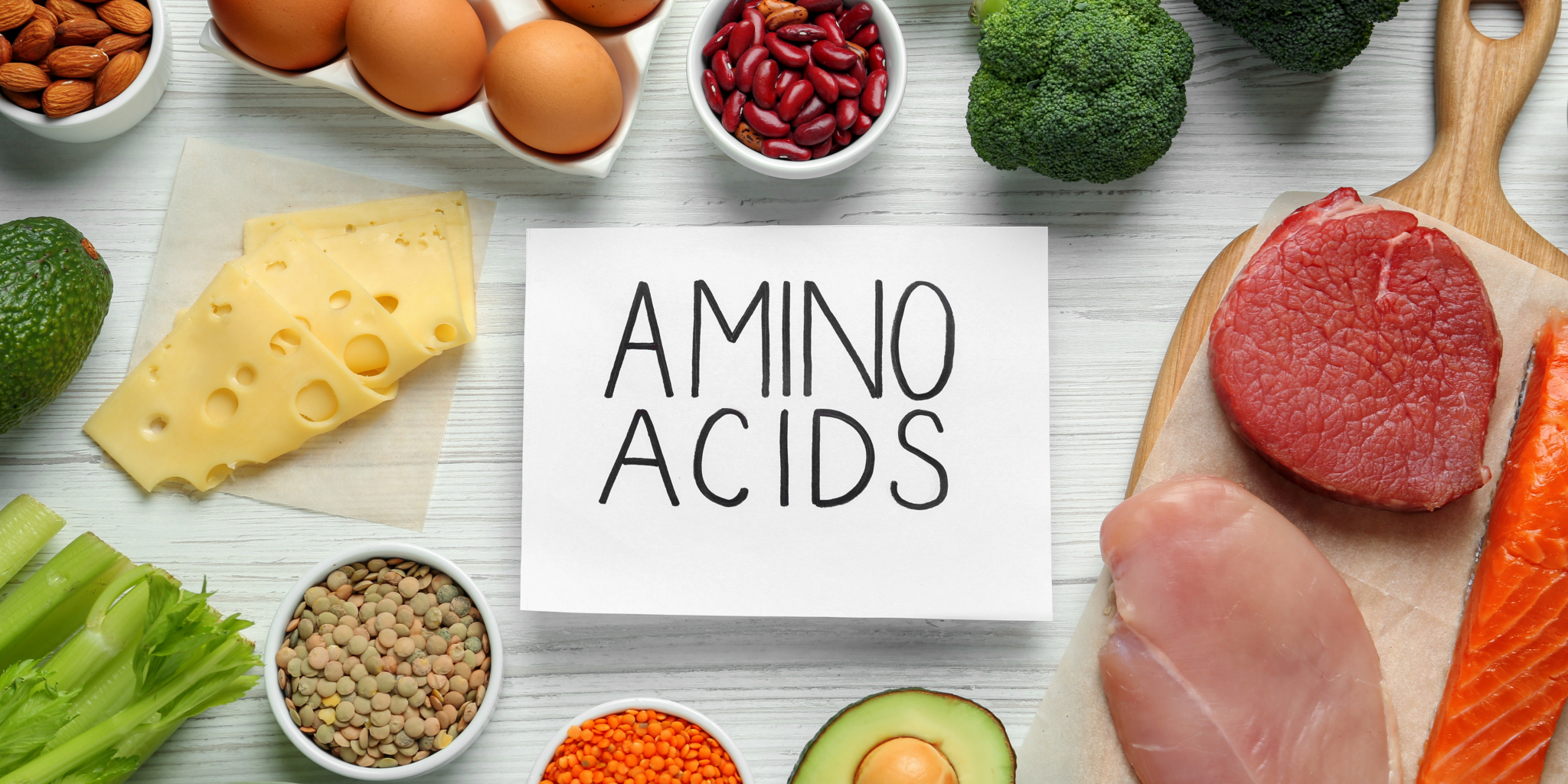First, what are amino acids?
Amino acids are the building blocks of protein. They make up the protein in the foods we eat as well as the muscles in our bodies. There are 20 amino acids that make up proteins in the human body, 9 of which are essential. Our body cannot make this group of aminos, which is why they’re called “essential.” We must obtain them through our diet.
BCAAs are part of this group of essential amino acids.

BCAA = Branched-Chain Amino Acids
There are three branched-chain amino acids: leucine, isoleucine, and valine. They’re called “branched” because of their nonlinear structure. They have a branch shape (like a tree) at the molecular level.

Benefits of BCAAs
The benefits of BCAAs is similar to that of protein. They support and promote muscle growth, speed recovery time and decrease soreness after a workout, help combat exercise fatigue, and can help fight against sarcopenia (age-related muscle loss).
Supplementation
Most BCAA supplements contain leucine, isoleucine, and valine in a 2:1:1 ratio. I was surprised to learn that there are many potential ways a BCAA supplement could be produced. There’s a vegan method that uses fermented beets. There are synthetic BCAAs that are created in a lab. And some supplements on the market are even made from bird feathers. Ew!
So, if you choose to take a free form BCAA supplement, it’s important to do your research and know how and where it’s manufactured. However, I don’t see much benefit in supplementing when there are easy and reliable ways to get these important amino acids.
I don’t see much benefit in supplementing when there are easy and reliable ways to get these important amino acids.
Dosage and Dietary Sources of BCAAs
The recommended dosage is 91 mg per pound of body weight per day, and they are most effective when taken before a workout.
Meat, fish, eggs, and dairy products are good sources of BCAAs. Whey protein powder also contains high levels. For instance, our Clean Whey Protein has 2587 mg Leucine, 1558 mg Isoleucine, and 1368 mg Valine to equal 5513 mg total BCAAs in one serving. For perspective, a person who weighs 100 pounds would need 9100 mg / day. So two servings of Clean Whey Protein would be more than enough to get the daily requirement.






Share:
How to Break Your Fast With Breakfast
Clearing the Confusion Around Saturated Fats